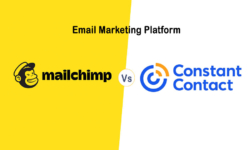Amazon has transformed from a humble eCommerce marketplace to one of the world’s largest companies (as well as the highest-grossing internet company in existence). Countless brands, companies, and individuals have built successful businesses using Amazon’s marketplace infrastructure.
If you’ve built a business on Amazon and are looking for an exit strategy, one of the best ways to go about selling your company is by using an Amazon business broker. Brokers serve to bridge the gap between buyers and sellers and are used to negotiate the terms/sale of a business.
Transferring ownership of a business can be difficult (especially online). This is one of the primary reasons why most business owners hire a business broker (to manage the transaction for them).
If you’re interested in going the broker route, but want to learn more about selling your Amazon business first, read our guide posted below. We cover everything involved in the selling process (valuation, contracts, transfer process, etc.).
Determining How Much Your Amazon Business Is Worth
The very first thing that most business owners want to know (before even starting the selling process) is how much their brand is worth. When it comes to selling online businesses, there is one main metric that is used in most valuations. This metric is known as “SDE,” which stands for seller discretionary earnings.
The SDE of a business is a representation of how much revenue the company has brought in minus any operating expenses (e.g. cost of goods, production costs, shipping, etc.). Finding out the SDE of your business would be the first step in determining the value of your company.
After the SDE has been figured out, the next step in the valuation process would be applying a multiple to the SDE. The multiple, as its name implies, affects the SDE according to various business factors.
These factors include everything from store traffic, number of products, and number of years in business, to what your sales percentages are (i.e. which of your products bring in the most revenue). Numerous factors can be considered a part of the multiple. Generally speaking, buyers are looking for businesses that have been operating for a few years, have a strong brand, and have more than one main product (in regards to sales percentages).
General Overview of the Selling Process
After you’ve determined the monetary value of your Amazon business, you need to start the actual selling process. The first part of the selling process involves deciding whether or not you want to go with a brokerage (to manage the sale). Otherwise, you’ll be left to find a buyer on your own, manage the sale, devise the contract, transfer ownership, etc.
All of this can be overwhelming (even for the savviest of small business owners), which is why most choose to hire a brokerage to manage everything. Below is a general overview of the steps involved during the selling process.
● Note: Brokerages differ in their processes, and the below guide represents a broad overview of selling an Amazon business.
Financial Data is Vital
The most important aspect of selling your business is producing clean (i.e. accurate) financial records. Buyers will want to know all of the required financial information related to your business, and most brokerages will require all of it before they start trying to sell your business in the first place.
Valuation
After the financial information has been given to the brokerage, they will then determine the value of your business. As we’ve already mentioned, numerous factors can go affect the valuation (e.g. history of business, products, niche, competition, etc.).
Contract
At this point, the brokerage will most likely have you sign a contract. The type of specific contract that you’ll sign varies, but it usually guarantees a certain amount of time for the brokerage to sell your business (along with any other important caveats). Three months is a typical timeframe used by a lot of brokerages.
Prospectus
After all of the financial and contractual dealings have been completed, the brokerage will develop a prospectus for your business (as well as a marketing plan in most cases). The prospectus provides potential buyers with a detailed overview of your business’s operational activities.
Finding a Buyer and Closing
After a potential buyer has been found, the brokerage will start the closing process (which can take longer than one might imagine). After all the necessary business calls, meetings, etc., the buyer will be required to sign what’s known as a letter of intent (i.e. a written confirmation of their intention to purchase your business).
At this point, the brokerage will continue to manage the closing/transition process until the business has been successfully transferred to the new owner.







